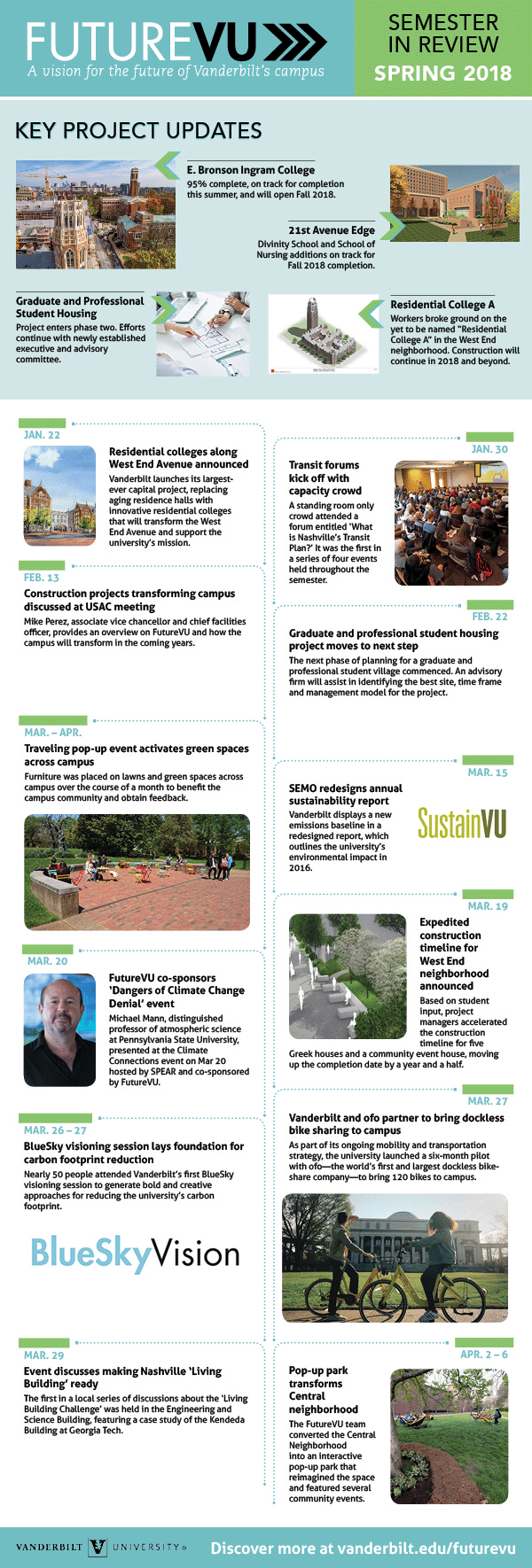A holistic vision for the physical development of campus over the next 20 to 30 years is now available on the FutureVU website.
The vision, which can be read in full or as an executive summary, includes long-term projects that affect the entirety of campus and individual campus “neighborhoods.” FutureVU strives to further establish connections across campus and throughout Vanderbilt’s surrounding communities. Each project is designed to uphold the values of diversity, inclusion, sustainability, optimized mobility and transportation, and the preservation of a historic park-like setting.
FutureVU provides guiding principles for capital projects and changes to the campus’s built environment that reinforce the university’s mission and values. FutureVU is driven by the Academic Strategic Plan and supported by these principles.
“FutureVU is a conceptual framework that articulates the possibilities in our built environment,” said Eric Kopstain, vice chancellor for administration. “While the vision will be fine-tuned as we move into actual design and implementation, the principles will remain a key constant throughout the process.”
In addition to releasing the vision, the FutureVU team continued community engagement and strategic planning efforts on several initiatives throughout the spring semester:
- Accessibility: The Advisory Accessibility Task Force continued to meet throughout the spring. A “roadshow” to present preliminary findings to the university community was developed, and the team has begun presentations. Following the roadshow presentations, recommendations will be presented to Vanderbilt leadership.
- Mobility and transportation: The university launched a six-month pilot of a dockless bike-share service on March 27 that accumulated more than 50,000 rides in the first month. Additionally, a detailed mobility implementation strategy is in development based on several efforts from the university community. Strategy development will continue over the summer, and opportunities for further engagement on these important topics are being planned for the upcoming fall semester.
- Sustainability: Nearly 50 people attended the first BlueSky energy visioning session to generate bold and creative approaches for reducing the university’s carbon footprint and energy consumption from the university’s utility usage. BlueSky engagement will continue throughout the summer and into the fall semester. Vanderbilt also displayed a new emissions baseline in a redesigned version of its annual sustainability report, which outlines the university’s environmental impact in 2016.
In addition, updated information about academic affairs capital projects currently underway can be found on the Office of the Provost website.
